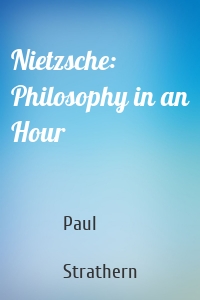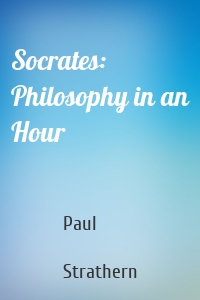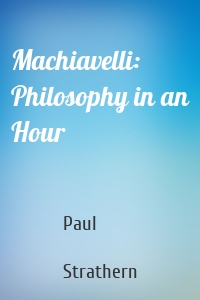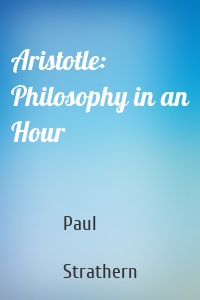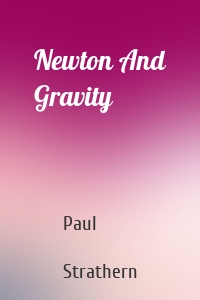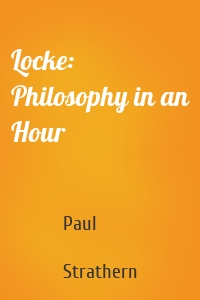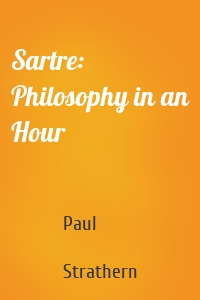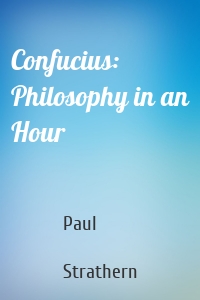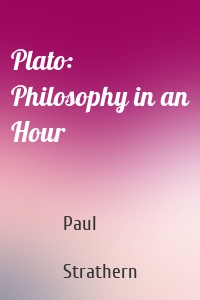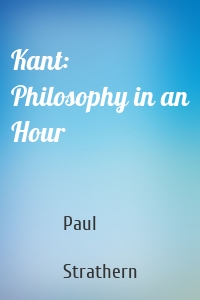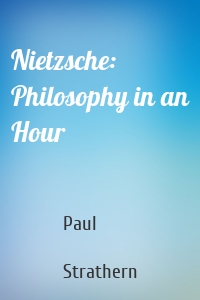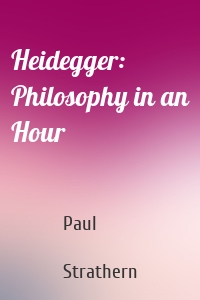Paul Strathern
103 кн.
Sartre: Philosophy in an Hour
Philosophy for busy people. Read a succinct account of the philosophy of Sartre in just one hour.Here is a concise, expert account of Jean-Paul Sartre’s life and philosophical ideas – entertainingly written and easy to understand. Also included are selections from Jean-Paul Sartre’s work, suggested further reading, and chronologies that place Sartre in the context of the broader scheme of philosophy.
| Автор | Paul Strathern |
Confucius: Philosophy in an Hour
Philosophy for busy people. Read a succinct account of the philosophy of Confucius in just one hour.Here is a concise, expert account of Confucious’s life and philosophical ideas – entertainingly written and easy to understand. Also included are selections from Confucious’s work, suggested further reading, and chronologies that place Confucious in the context of the broader scheme of philosophy.
| Автор | Paul Strathern |
Plato: Philosophy in an Hour
Philosophy for busy people. Read a succinct account of the philosophy of Plato in just one hour.Plato is still seen by many as the greatest of all philosophers, inspiring many of the finest thinkers through the ages. Indeed, many see all later philosophy as nothing but attempts to answer the questions he raised. He founded the Academy, the world’s first university, in 387 BC and taught that the physical world is not reality but rather a reproduction of the true source.Plato: Philosophy in an...
| Автор | Paul Strathern |
Kant: Philosophy in an Hour
Philosophy for busy people. Read a succinct account of the philosophy of Kant in just one hour.Immanuel Kant taught and wrote prolifically about physical geography yet never travelled farther than forty miles from his home in Königsberg. Appropriately, his philosophy strenuously denies that all knowledge is derived from experience, insisting instead that all experience must conform to knowledge. Kant’s aim was to restore metaphysics. According to Kant, space and time are subjective; along with...
| Автор | Paul Strathern |
Nietzsche: Philosophy in an Hour
Philosophy for busy people. Read a succinct account of the philosophy of Neitzsche in just one hour.Philosophy has always been dangerous for philosophers; Friedrich Nietzsche made it dangerous for everyone. His ideas presaged a collective madness which was to ravage Europe throughout the first half of the twentieth century, drawing a chilling parallel with the insanity that gripped Nietzsche towards the end of his life. His philosophy is one of aphorisms and penetrating psychological insights,...
| Автор | Paul Strathern |
Heidegger: Philosophy in an Hour
One of the two major philosophical traditions of the twentieth century was linguistic analysis, derived largely from Wittgenstein. The other, diametrically opposed, came from Heidegger, and its fundamental question was: ‘What is the meaning of existence?’ For Heidegger, this was not a query that could simply be ‘analysed away’ – it was beyond the reach of logic or reason. This was the primary ‘given’ of every individual life. To confront it, Heidegger needed to develop an entirely new form of...
| Автор | Paul Strathern |



